UWE Bristol academic works with child sexual abuse survivors to improve their experiences of sexual health services
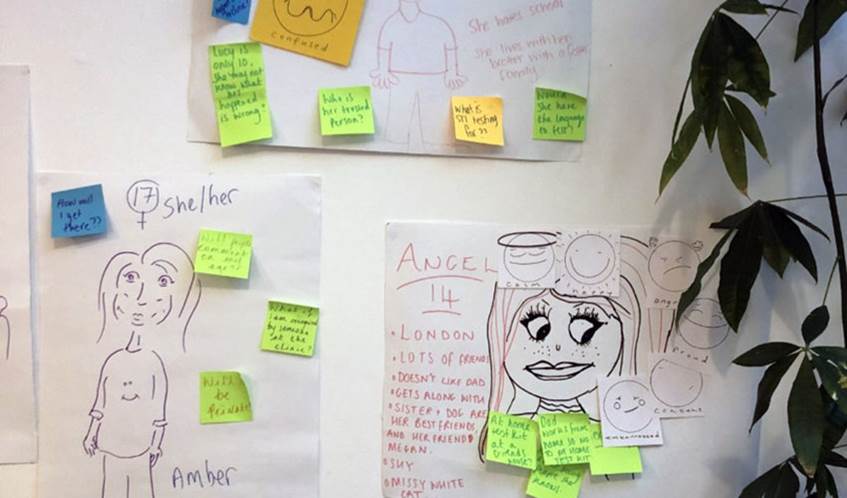
A health psychologist at UWE Bristol has worked with partners to develop improved services for children and young people who have experienced sexual abuse.
Through Bristol Health Partners Sexual Health Improvement Health Integration Team (SHIP HIT), Dr Jane Meyrick collaborated with health professionals, service providers and local authorities to work with survivors of child sexual abuse to improve their experiences of sexual health services in the city.
The partners hope the improvements will help increase attendance at sexual health follow-up appointments after visiting The Bridge Sexual Assault Referral Centre (SARC) in Bristol. Children and young people who have experienced sexual abuse are referred to the centre for sexual health services and testing but an audit of The Bridge’s paediatric service showed one in five children and young people were not attending their follow-up appointment.
The partnership work resulted in a new patient pathway for The Bridge SARC in Bristol into local sexual health services for our children and young people, designed with the young people who use it. The redesigned and co-created pathway has been in use since January 2023 and its effectiveness will be evaluated at the end of the first year.
Child sexual abuse often has a lifelong impact. At least 15 per cent of girls and young women and five per cent of boys and young men experience some form of sexual abuse before the age of 16. After this happens, they may be offered support from a paediatric Sexual Assault Referral Centre (SARC) and a sexual health follow-up referral.
The Bridge SARC, provided by University Hospitals Bristol and Weston NHS Foundation Trust, coordinates sexual health follow-up for children across Avon and Somerset, Gloucestershire, and Wiltshire. Around 200 children and young people are referred each year through GPs, and paediatric and sexual health clinics.
For children and young people, and their carers, attending a sexual health follow-up appointment may provoke anxiety or risk revisiting their trauma. Informal feedback highlighted that some interactions had been difficult.
The review showed that some health care professionals working in primary care (e.g. GP practices) felt that they did not have the right skills to carry out consultations well with children and young people who have survived sexual assault.
To identify ways to improve the service, SHIP HIT members approached The Green House, a special support service for child sexual abuse survivors in Bristol. They asked if the young people involved would let them work with them to think about changes that could be made to the pathway that would increase sexual health follow-up attendance.
UWE Bristol Associate Professor in Health Psychology Dr Jane Meyrick, The Bridge’s Rachel Adams, and The Bridge’s crisis worker Hope Barraclough worked with young people from the Green House in the post-therapy stage of recovery, alongside their trusted ‘voice’ worker, with ongoing support from a crisis worker and an established safeguarding framework. They used creative, arts-based workshops to develop characters needing to use the service, ensuring a safe distance from the participants’ own trauma.
The ideas that the young people developed were made into a patient ‘passport’ to help children, young people and their carers navigate and tailor the sexual health follow-up service.
Dr Meyrick, who is SHIP HIT’s patient and public involvement lead, said: “We realised that we needed to ask young people what they wanted, and we needed to do it in a way that truly put them in the driving seat of redesigning the pathway. So, wherever possible, we found ways that we could give the agency back to these young people, in terms of where they came for testing, what they brought, who they saw, or what information they had.
“This resulted in a patient pathway that was like a passport – we called it a map of the journey. It’s a way through the service, explaining the options at each stage and trying to make that very accessible, warm, and friendly, but also informative. At the same time, we addressed the information needs of some of the parents and clinicians, so there is a parallel professional pathway next to the passport.”
Hope Barraclough, a crisis worker at The Bridge SARC, said: “If another Sexual Assault Referral Centre wanted to develop a similar pathway, we would strongly encourage they run a project like ours in their own area to ensure the children and young people’s voices continue to be at the centre of service design.”
The full academic paper about the project has been published in BMJ Sexual & Reproductive Health.
Related news
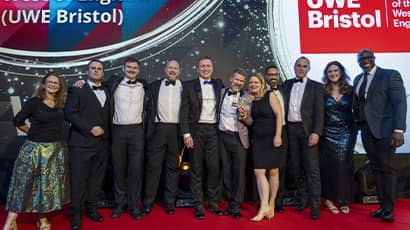
12 December 2025
UWE Bristol’s environmentally conscious and student-focused accommodation wins three awards
Purdown View, the world's largest certified Passivhaus student accommodation development, has been recognised at Property Week Student Accommodation Awards.
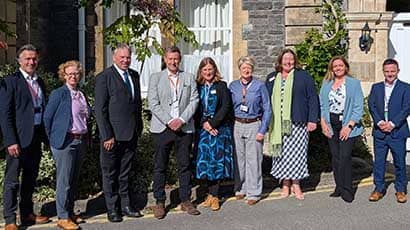
13 November 2025
Alliance Medical and UWE Bristol launch UK’s first PET-CT postgraduate certificate
In a move set to transform imaging education, Alliance Medical (AML) and UWE Bristol have joined forces to co-design and develop the UK’s first PET-CT Postgraduate Certificate (PG Cert).

10 November 2025
Lessons from Low Traffic Neighbourhoods will drive better public engagement, study finds
Lessons from Low Traffic Neighbourhoods have informed a new toolkit to improve engagement with the public on challenging local street issues.

29 September 2025
Smartphone use hitting struggling pupils hardest, major study finds
Young people struggling with their studies at school are much more likely to have negative experiences on their smartphones than their better performing peers, a major new study has found.
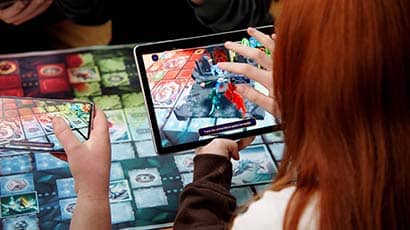
11 September 2025
New study to investigate augmented reality as an intervention for emotionally based school avoidance
A UWE Bristol researcher will support a new study exploring whether an augmented reality board game can help young people with emotionally based school avoidance (EBSA).

28 July 2025
Student wins bronze medal at World Aquatics Championships on her graduation day
UWE Bristol sports rehabilitation student Izzy Thorpe made waves at the World Aquatics Championships winning a bronze medal in artistic swimming on the same day she was meant to be crossing the stage at her university graduation ceremony.
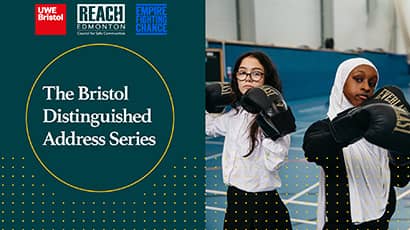
28 May 2025
Leading organisations fighting to end youth violence in cities join UWE Bristol event panel
Leaders from Bristol-based Empire Fighting Chance and Canadian non-profit REACH will speak at the next Bristol Distinguished Address Series.
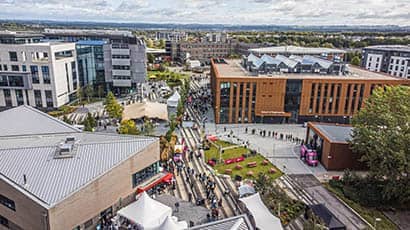
09 May 2025
UWE Bristol among first universities in UK to introduce sanitary waste bins in male toilets
UWE Bristol is among the first universities in the UK to introduce sanitary waste bins in male toilets for the disposal of incontinence products.
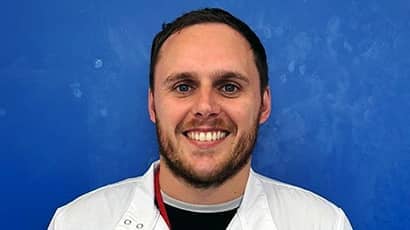
11 April 2025
UWE Bristol academics among emerging scientific leaders to receive share of £7.6m for health research
Two UWE Bristol researchers are among the recipients of a £7.6 million investment from the Academy of Medical Sciences aimed at tackling urgent health challenges.
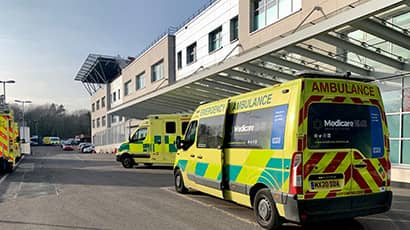
09 April 2025
New research to support a thriving health and care workforce is launched
A national research partnership will explore ways to support wellbeing and sustainability in the NHS and social care same day and urgent care workforce.
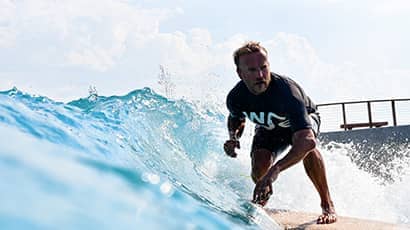
10 March 2025
UWE Bristol to explore the power of open water swimming at upcoming event with The Wave founder Nick Hounsfield
An inspiring tale of grit and resilience will be told to audiences at the first BDAS event of 2025 as UWE Bristol welcomes Nick Hounsfield, founder of The Wave.
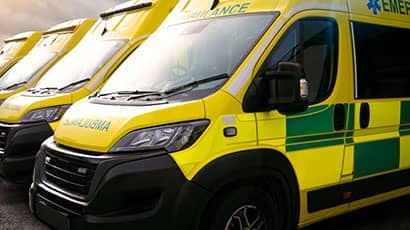
28 February 2025
Paramedics in GP surgeries may ease workload but not NHS costs, study finds
Paramedics working in GP surgeries help reduce GP workload but do not contribute to cost savings to the NHS, according to the first major study of the clinical and cost-effectiveness of paramedic compared with GP consultations.
You may also be interested in
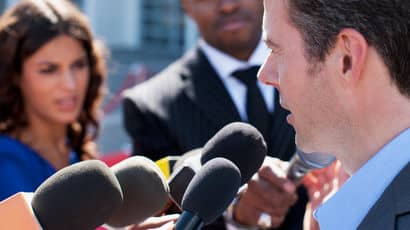
Media enquiries
Enquiries related to news releases and press and contacts for the media team.
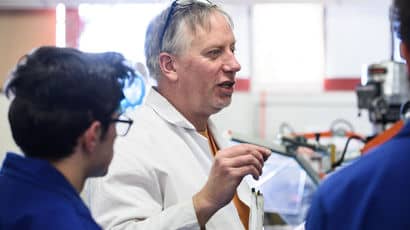
Find an expert
Media contacts are invited to check out the vast range of subjects where UWE Bristol can offer up expert commentary.
College of Health, Science and Society
The College of Health, Science and Society is a large, diverse and dynamic part of the University, bringing together experts from Health and Social Wellbeing, Applied Sciences, Education and Social Sciences






